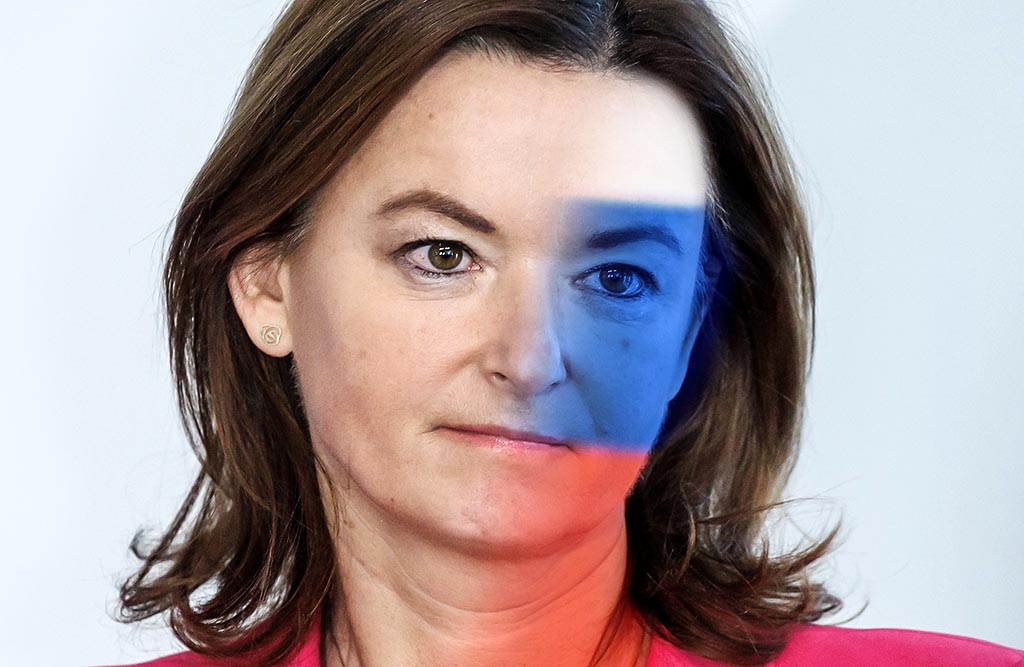Foreign ministers of the Central European Five (C5), a group of countries including Austria, Slovakia, Hungary, the Czech Republic, and Slovenia, met in Vienna on Wednesday. The Czech Foreign Ministry said that the heads of diplomatic missions – and Slovenian Foreign Minister Tanja Fajon – discussed topical foreign policy issues. They also met with the Secretary-General of the Organisation for Security and Cooperation in Europe (OSCE), Helga Schmid, to discuss the future of the OSCE in the European security architecture. It is unusual, however, that the countries have taken a position that shows a willingness to maintain good relations with Russia.
The OSCE is considered a relevant Eurasian security institution which has played an important and positive role in the peaceful reintegration of the Danube region. It was founded in the first half of the 1970s and is based on the Helsinki Final Act, which Russia has violated in the most brazen manner, most recently with its aggression against Ukraine. It has, of course, violated it before, for example, by invading Georgia with its military.
According to the Croatian media outlet Jutranji List (Morning Newspaper), Czech Minister Jan Lipavský said that in the meeting, the countries discussed “assistance to Ukraine, support for the Western Balkan countries on their way to a membership in the European Union, as well as illegal migration, which is a pressing problem for Schengen.” Austria also cautiously stated in the press statement that “the C5 members underlined their solidarity with Ukraine and the Ukrainian people in the search for a fair, just and lasting peace. At this point in time, they said it was important to maintain channels of communication, especially within the OSCE.” The channels of communication, in this case, refer to Russia. Moscow is currently blocking the organisation’s budget and Estonia’s efforts to take over the chairmanship from North Macedonia.
Five European countries advocate good relations with Russia
There was consensus in the C5 group that the solution lies in maintaining communication channels with Russia, a point also underlined by Hungarian Foreign Minister Péter Szijjártó at a press conference. The Hungarian media outlet Portfolio.hu reports that Hungary was “surprisingly joined by the other four Member States.” Although this is an attempt to help the OSCE, the conclusion is not surprising, according to the portal. The group of countries within the EU that are still willing to defend good relations with Russia were only formally highlighted in the company of the Hungarian Minister, who was the only representative from the European Union to meet Russian Foreign Minister Sergei Lavrov in New York and has also announced his future trip to Moscow.
Austria continues to buy Russian gas, and Raiffeisen Bank continues to do well in Russia. Vienna has already been criticised for allowing Russian delegates into OSCE meetings. Our northern neighbour is seen as neutral, as it wants to retain the possibility of moderating any future negotiations, but it wants to ensure that security ties are strengthened and is therefore keen to join the Sky Shield initiative for airspace protection, launched by Germany. They have decided to do so as a precaution – in case there is widespread aggression. Slovakia is still considered to have the highest proportion of pro-Russian people, next to Bulgaria, and is also experiencing a heated election campaign, with Robert Fico, who is pro-Russian, on the verge of victory.
Many people here, and probably some outside observers as well, are wondering how it is possible that Tanja Fajon has joined the others in this position. But it is worth remembering at this point that last year, Milan Kučan, together with a group of left-wing intellectuals and politicians close to him, called on the Slovenian Government to insist on the EU helping to bring about negotiations between Ukraine and Russia that would be acceptable to both sides. This is also the view of the left-wing political option, to which the Social Democrats party (Socialni demokrati – SD) belongs, of which Minister Tanja Fajon is President and a member – that is to say, they also wanted to offer negotiations that are also acceptable to the aggressor.
Of course, communication with Russia needs to exist, and it does, and there are still active diplomatic missions in Moscow and vice versa, but the question here is what the four countries, with the exception of Hungary, were trying to achieve with this public statement in the first place. Were they perhaps trying to keep Russia in the OSCE, even though Russia has violated many of the principles, or perhaps all of the principles, on which this international security organisation is based? Many people are pointing out that once the war in Ukraine is over, it will be time for a new security architecture to be created in Europe, but one in which Russia should no longer have the veto it has had up to now. Perhaps the aim was to make Russian President Vladimir Putin and the Belarusian dictator Alexander Lukashenko happy. If Russia continues to be allowed to work as it has done up to now, it will be difficult to save the functioning of the OSCE.
Ž. N.


